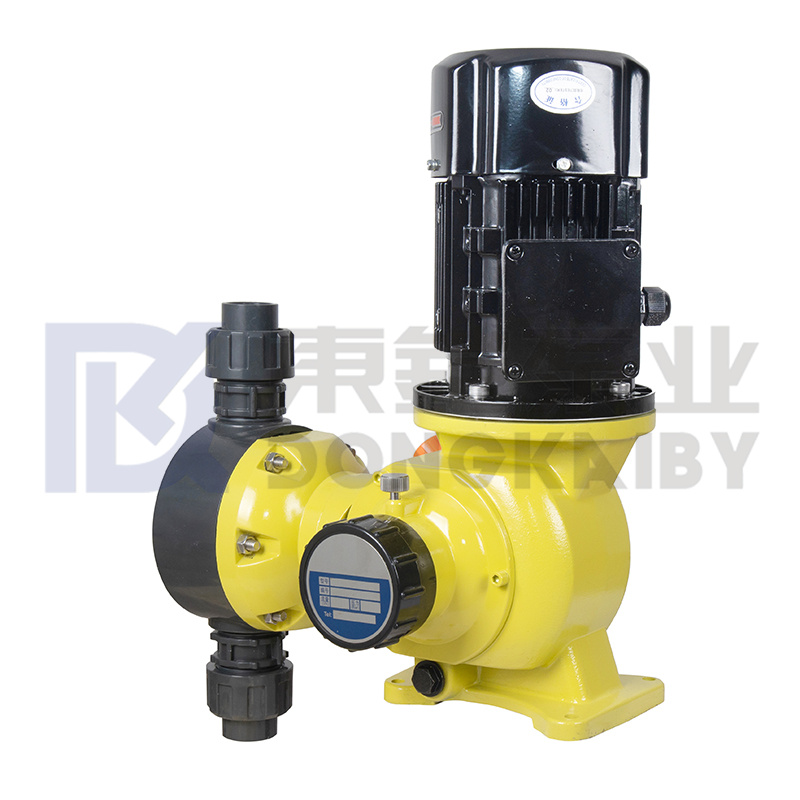Understanding Dosing Pumps: A Key Component in Accurate Fluid Management
2025-03-26
Dosing pumps play a crucial role in various industries where precision in fluid measurement is essential. From water treatment facilities to pharmaceutical production, these pumps ensure that the right amount of chemicals or liquids is delivered at the right time. In this blog, we’ll dive into what dosing pumps are, their types, applications, and why they are indispensable in many fields.
What is a Dosing Pump?
A dosing pump, also known as a chemical dosing pump, is designed to deliver a precise volume of liquid or chemical into a system at a controlled rate. These pumps are widely used for injecting chemicals into various processes, ensuring that the right concentration is maintained. The flow rate and dosing time can often be adjusted to suit specific requirements, making them versatile tools for different applications.
Unlike regular pumps, which might deliver a continuous flow of liquid, dosing pumps are specialized to handle controlled, precise quantities of fluid. They are designed to work with a wide range of fluids, including acids, bases, detergents, disinfectants, and even more complex mixtures used in industrial processes.
Types of Dosing Pumps
1. Diaphragm Dosing Pumps:
Diaphragm dosing pumps are among the most common types of dosing pumps. These pumps use a diaphragm to move the fluid through the system, which provides a consistent flow with minimal pulsation. They are ideal for applications where accuracy and reliability are essential. These pumps are often used in the chemical, water treatment, and food industries due to their ability to handle both aggressive and viscous fluids.
2. Piston Dosing Pumps:
Piston dosing pumps are known for their robustness and high pressure capabilities. They use a piston mechanism to deliver liquid, making them suitable for high-pressure applications. These pumps are often used in the oil and gas industry, as well as in chemical processing, where precise dosing under pressure is required.
3. Peristaltic Dosing Pumps:
Peristaltic pumps are ideal for applications where hygiene and cleanliness are crucial. They operate by squeezing a flexible tube to move fluid, which makes them suitable for handling aggressive chemicals, biological fluids, and even food-grade liquids. These pumps are easy to maintain and clean, making them popular in the pharmaceutical and food industries.
4. Gear Dosing Pumps:
Gear dosing pumps are known for their precision and ability to handle both thick and thin fluids. The liquid is pumped by the rotation of gears, which ensures an accurate and steady flow. These pumps are commonly used for oil and lubricants, as well as in industrial chemical processes.
Applications of Dosing Pumps
1. Water Treatment:
In water treatment facilities, dosing pumps are used to add chemicals such as chlorine, fluoride, or coagulants to ensure that the water meets health and safety standards. The precise dosing of these chemicals helps to maintain water quality and treat contaminants effectively.
2. Pharmaceutical Industry:
Dosing pumps play a crucial role in pharmaceutical manufacturing, where accurate measurement of active ingredients is critical. These pumps are used to ensure that the correct dose of medication is administered in the production process, whether it's for oral medications, injections, or topical treatments.
3. Agriculture and Fertilization:
In agriculture, dosing pumps are used for the precise application of fertilizers and pesticides. The ability to control the flow rate ensures that the crops receive the right amount of nutrients or protection, promoting healthy growth while minimizing waste or environmental impact.
4. Food and Beverage Industry:
Dosing pumps are also prevalent in the food and beverage industry, where they are used for adding flavorings, preservatives, or other ingredients in controlled amounts. For example, they can be used to accurately dose syrup in beverages or additives in processed foods.
5. Oil and Gas:
In the oil and gas industry, dosing pumps are used to inject chemicals that help in the extraction, processing, and transportation of oil and gas. These chemicals might include corrosion inhibitors, scale inhibitors, or other additives that improve the efficiency of the process.
6. Swimming Pools and Aquariums:
Dosing pumps are used in maintaining the cleanliness and safety of swimming pools and aquariums. They can be used to add chlorine, pH balancers, or other chemicals automatically, ensuring that water conditions remain optimal with minimal manual intervention.
Why Are Dosing Pumps Important?
1. Precision and Accuracy:
The primary advantage of a dosing pump is its ability to deliver precise amounts of liquid or chemical. This accuracy is essential in industries where even slight variations in chemical concentration can lead to ineffective processes or unsafe products.
2. Automation and Efficiency:
Dosing pumps are often automated, which reduces the need for manual labor. This not only improves efficiency but also reduces human error, ensuring that the correct amount of chemical is dosed every time, even in continuous operations.
3. Safety:
Many of the fluids and chemicals handled by dosing pumps can be hazardous. Using a dosing pump helps reduce the risk of spills or over-dosing, which could be dangerous for both people and the environment.
4. Cost-Effective:
By ensuring that chemicals and fluids are used in the right quantities, dosing pumps help to reduce waste, which leads to significant cost savings in industries where chemical usage can be expensive. Additionally, automated systems can reduce labor costs and minimize the risk of errors that could lead to costly consequences.
Conclusion
Dosing pumps are vital components in industries where precise fluid management is required. Whether it's for water treatment, pharmaceutical manufacturing, or agricultural applications, these pumps ensure that the right amount of chemical or liquid is delivered at the right time. The evolution of dosing pump technology has made them more accurate, efficient, and reliable, making them indispensable in many sectors. As industries continue to demand higher levels of precision and efficiency, dosing pumps will remain a key player in ensuring that fluid management is both safe and cost-effective.



